Home> Company News> How Pressure Compensated Pump Work & Why You Need The Best ?
- AddressToh Guan Centre, 31/F,69 Toh Guan Rd E, Singapore 608609
- Factory AddressToh Guan Centre, 31/F,69 Toh Guan Rd E, Singapore 608609
- Worktime9:00-18:00
- Phone(Working Time)0065-31591578
- Phone(Nonworking Time)0065-31591578
- Fax0065-31591339
How Pressure Compensated Pump Work & Why You Need The Best ?
2023-04-24 16:00:52A pressure compensated pump is a type of pump that helps maintain the pressure in your well. They are used when there is limited amount of water available in your well, but you need more than what is naturally coming out of it. This can happen with many different types of wells including those that draw from aquifers and those that use water pumps to access water from rivers or lakes.
Pressure compensated pumps work by providing a constant flow of water.
Pressure compensated pumps work by providing a constant flow of water. These pumps are used in irrigation systems, as well as water supply systems and commercial and industrial applications. The best known example of a pressure compensated pump is a kitchen faucet. If you have ever turned on your kitchen tap and noticed that it took a few seconds before the water started flowing at full speed, then you've experienced what happens when there's no pressure compensation in place!
Pressure compensated pumps are also responsible for maintaining consistency throughout your home or business--whether it's hot or cold outside; whether you turn off one tap but leave another running; whether someone else flushes their toilet while yours is running--the result will always be the same: even pressure throughout every room (or bathroom).
They are especially useful in irrigation systems, where they are used frequently.
Pressure compensating pumps are especially useful in irrigation systems, where they are used frequently. They are also used in agriculture, commercial and industrial applications and water supply systems.
Pressure compensating pumps are a type of positive displacement pump that uses a small amount of fluid to create a large volume of flow. This means that the pressure at which they operate remains constant despite changes in flow rate.
They are also used in water supply systems, as well as commercial and industrial applications.
Pressure compensators are also used in water supply systems, as well as commercial and industrial applications. They're an essential component of irrigation systems because they help maintain a constant pressure level through the use of an external regulating device.
The purpose of a pressure compensator is to compensate for changes in system conditions (such as elevation or temperature), which can cause fluctuations in pressure levels that could damage equipment. If you don't have one installed on your system, then you should consider getting one right away!
The purpose of a pressure compensator is to compensate for changes in system conditions (such as elevation or temperature), which can cause fluctuations in pressure levels that could damage equipment. If you don’t have one installed on your system, then you should consider getting one right away!
The best known example of a pressure compensated pump is a kitchen faucet.
The best known example of a pressure compensated pump is a kitchen faucet. When you turn on the tap, water flows out of the spout at a constant rate regardless of how high or low your water pressure may be. This is because most kitchen faucets have an internal valve that compensates for changes in pressure, ensuring that you always get consistent flow rates no matter what.
Pressure compensated pumps are used in many places other than kitchens too though; they're often found in irrigation systems and industrial applications where accurate pressures need to be maintained despite fluctuations in external conditions such as wind speed or temperature changes outside (or even within) your building structure itself!
Often the most common application for a pressure compensated pump is in an irrigation system. As you may know, there are many different types of irrigation systems; some use underground pipes and others use overhead sprayers. They all have one thing in common though: they need to be able to maintain a consistent pressure over long distances so that water will flow from one end of the system to another without interruption.
Pressure compensated pumps are a great way to get water or liquids flowing even under changes in pressure
Pressure compensated pumps are a great way to get water or liquids flowing even under changes in pressure. The key to understanding how pressure compensated pumps work is that they use an internal check valve to control the flow of fluid through the pump. This helps keep the pressure at a constant level, even as you're changing elevations and going through different terrain.
In order to understand why this can be important for your home or business, let's look at two scenarios: one where you have no pressure compensation system installed and one where you do have one installed. In both cases, let's say that we are taking our well-water supply from ground level up into our house using a standard pump (like those used in most residential homes).
Without a pressure compensation system, our pump will be pumping water uphill and the pressure at the end of the line will drop. In this case, we'll have to install an additional pump to help compensate for this loss of pressure.
How does a pressure compensated pump work?
You've probably come across a pressure compensated pump before. If you have, then you know how useful they can be. This type of pump provides constant flow of water regardless of changes in pressure or elevation, making them ideal for irrigation systems and other applications where there are large fluctuations in height.
They're also used in water supply systems that need to maintain consistent pressure throughout the system (think: drinking fountains). And since they're so common, many people assume that all pumps work like this--but they don't! In fact, most residential homeowners don't even know what makes these devices so special until something goes wrong with their own home's plumbing system and suddenly there's no hot water coming out of the taps anymore because some part broke down due to old age or poor maintenance practices over time...
What is a pressure compensated pump?
The pressure compensated pump is a type of pump that is controlled or driven independently from the pump. These pumps are used to control the pressure of water flow in systems where there are changes in elevation, such as irrigation systems and water supply systems.
When you use a pressure compensated pump, you can get big savings when compared with using standard pumps because these types of equipment use less energy for each unit of flow rate than standard ones do. They're also more efficient at maintaining constant pressure over long distances--great news if your property spans many acres!
The best thing about using pressure compensated pumps? They're versatile enough for both commercial and industrial applications as well as residential ones (and we'll go into detail about why this matters later).
The importance of choosing the right pump.
You might not have heard of pressure-compensated pumps, but they are an important tool in many industries. Pressure-compensated pumps are used to transfer liquids under high pressure and can save you money if you use them correctly. In fact, these pumps have been shown to be more efficient than standard pumps because they maintain constant flow rates over a wide range of pressures without the need for manual adjustment or recalibration. This means that your operation will be able to run at optimal efficiency 24 hours per day 7 days per week with less downtime due to maintenance or repairs.
The biggest benefit of choosing this type of pump is its ability to offer big savings when used in large operations such as oil refineries where thousands or even millions gallons per hour must be pumped through pipes at high pressures (upwards from 10 PSI).
You should choose the right pump to make your life easier.
Choosing the right pump for your needs is important. The type of pump, its size and power requirements will depend on your application. For example, if you need to move a large volume of water over long distances then a centrifugal pump will be more appropriate than an axial turbine pump.
A pressure compensated pump works by maintaining constant pressure throughout its operational range regardless of speed or elevation changes in the system being pumped. This means that they are ideal when pumping fluids with varying viscosities such as oil & gas wells where there may be significant differences between surface and bottom hole pressures due to friction losses during flow through pipes or tubing string (known as "slugs").
Pressure compensated pumps maintain the same pressure at all points in a system, including the pump itself. The result is that they are able to handle fluids with varying viscosities without straining or damaging themselves.
A pressure compensated pump is a pump that is controlled or driven independently from the pump.
A pressure compensated pump is a pump that is controlled or driven independently from the pump.
The purpose of this technology is to maintain a constant flow rate, regardless of changes in system pressure. This means that you don't have to worry about adjusting your pump speed when there are changes in demand for water or other liquids being pumped through it.
The technology is most commonly used in municipal water systems and industrial applications where there are a lot of people using a lot of water. It's also necessary to maintain high-pressure systems, like those found in many fire trucks and ambulances.
The pressure compensation pump allows for higher flow rates of liquids at low pressures.
The pressure compensated pump allows for higher flow rates of liquids at low pressures. This is ideal for irrigation systems, water supply systems and commercial and industrial applications where there is a large difference between the high-pressure supply and low-pressure demand points.
The pressure compensation pump works by measuring the pressure in both sides of its housing. It then measures the difference between these two readings: if there is little difference between them then it will allow more liquid to flow through; if there is a greater difference then this will restrict how much liquid can pass through it
The pressure compensation pump works by measuring the pressure in both sides of its housing. It then measures the difference between these two readings: if there is little difference between them then it will allow more liquid to flow through; if there is a greater difference then this will restrict how much liquid can pass through it
The performance of the centrifugal pump is affected by the backflow pressure in the line, which is proportional to the resistance of the delivery line and may be affected by its shape and length.
The performance of the centrifugal pump is affected by the backflow pressure in the line, which is proportional to the resistance of the delivery line and may be affected by its shape and length. The amount of backflow pressure depends on many factors including:
-
Type of liquid being pumped
-
Size and shape of pipe used for delivery
-
Length of pipe that carries liquid from one point to another
The increasing backflow pressure results in a corresponding increase in power consumption.
If you are using a pressure compensated pump, then the backflow pressure will be adjusted automatically by the compensator. The increasing backflow pressure results in a corresponding increase in power consumption. The compensator can adjust to compensate for this, but if it doesn't work properly or if there is no backflow at all (which isn't supposed to happen), then there can be problems with your system.
The best way to avoid these issues is by installing an electric pump with no built-in compensation system!
A pressure compensator automatically adjusts itself to minimize this effect.
A pressure compensator automatically adjusts itself to minimize this effect. It can be adjusted to match the flow rate to the pump capacity, which is what makes it so useful.
A pressure compensator works by reducing backpressure on your pump, which allows more water to be pushed through it at once and reduces wear and tear on your equipment. This means that you'll need less maintenance down the line!
Pressure compensated pumps are more efficient than standard pumps and can offer big savings when used in large operations.
Pressure compensated pumps are more efficient than standard pumps and can offer big savings when used in large operations. For example, if you have an irrigation system with a pressure compensating pump, you will see a 10% increase in performance and save up to 40% on your water bill. Pressure compensated pumps are also used extensively in the water supply industry because they help reduce leaks and improve efficiency of existing equipment.
In addition to being more efficient, these pumps can be used for many other things:
-
They're great for commercial applications like restaurants or hotels where there is constant demand for hot water (and thus constant use).
-
They're excellent for homes that need consistent flow rates regardless of whether there's just one person using hot water or several people simultaneously taking showers or washing dishes at once!
Conclusion
If you're looking to save money and water in your home or business, a pressure compensated pump is the way to go. These pumps are more efficient than standard pumps and can offer big savings when used in large operations. If you want more information about how pressure compensated pumps work or if you need help choosing one for yourself, contact us today!
Mud pump bearings Turntable bearings Agricultural bearings Angular Contact Bearings Duplex Angular Contact Bearings Industrial bearings Iron and steel industry bearings Power transmission bearing Hydrostatic centripetal bearing Ball Thrust Bearings Papermaking Machinery bearings Agricultural machinery bearing McGILL bearing Rexroth pump assay Komatsu motor parts BOSCH Fuel injector Hitachi excavator parts Axial Piston Pumps Sauer Danfoss pump Eaton pump parts Nachi pump assay Linde pump Mining Construction Ball Bearings Linear Bearings vane pumps gear pumps inc piston pumps Thin-Section Ball Bearings Adapter Sleeves pressure valves gear reducer relief valves Mcgill Bearing Die & Mold Plain-Bearing Bushings FAG Bearing Singapore SKF bearing Accessories SKF bearing Housing SKF bearing shaft seals SKF Bearing units Bearing Distributors Inventory Oilfield mud pump bearings Heavy-Duty Shaker Screen Spherical Double row double row tapered roller bearings (inch series) Multi-Row Roller Bearings NTN Four Row Cylindrical Roller Bearings NTN SL Type Cylindrical Roller Bearings NTN SL Type Cylindrical Roller Bearings for Sheaves NTN Single Row Tapered Roller Bearings NTN Double Row Tapered Roller Bearings NTN Four Row Tapered Roller Bearings NTN Spherical Roller Bearings NTN Thrust Bearings NTN Bearings for special applications NTN DOUBLE-ROW CYLINDRICAL ROLLER BEARINGS NSK FULL-COMPLEMENT CYLINDRICAL ROLLER BEARINGS NSK SINGLE-ROW TAPERED ROLLER BEARINGS NSK YUKEN Piston pump DOUBLE-ROW TAPERED ROLLER BEARINGS NSK SPHERICAL ROLLER BEARINGS NSK SINGLE-DIRECTION THRUST BALL BEARINGS NSK CYLINDRICAL ROLLER THRUST BEARINGS NSK TAPERED ROLLER THRUST BEARINGS NSK SPHERICAL THRUST ROLLER BEARINGS NSK ROLLING BEARINGS FOR STEEL MILLS NSK SEALED-CLEAN FOUR-ROW TAPERED ROLLER BEARINGS NSK FOUR-ROW CYLINDRICAL ROLLER BEARINGS NSK DOUBLE-ROW TAPERED ROLLER BEARINGS NSK Roll Bearings for Mills NSK Ball Bearings NSK TAPERED ROLLER THRUST BEARINGS For Adjusting Screws NSK Thin Section Bearings Kaydon Double row double row tapered roller bearings (inch series) Double direction thrust tapered roller bearings Full complement Tapered roller Thrust bearing Thrust cylindrical roller bearings Thrust spherical roller bearings Sealed Four Row Tapered Roller Bearings Four row tapered roller bearings Double outer double row tapered roller bearings TDO double-row tapered roller bearings Single row tapered roller bearings inch Double inner double row tapered roller bearings TDI Double inner double row tapered roller bearings inch Spherical roller bearing Four row cylindrical roller bearings Single row cylindrical roller bearings Full row of cylindrical roller bearings Double row cylindrical roller bearings Double row full complement cylindrical roller bearings Four point contact ball bearings Double row angular contact ball bearings Deep groove ball bearings ANGULAR CONTACT THRUST BALL BEARINGS TYPE TVL DTVL angular contact thrust ball bearing. TP thrust cylindrical roller bearing TPS thrust cylindrical roller bearing THRUST SPHERICAL ROLLER BEARINGS TYPES TSR-EJ AND TSR-EM TTHD THRUST TAPERED ROLLER BEARINGS TTHDFL thrust tapered roller bearing TTHDFLSA THRUST TAPERED ROLLER BEARINGS THRUST TAPERED ROLLER BEARINGS TYPES TTSP, TTSPS AND TTSPL THRUST TAPERED ROLLER BEARINGS – TYPES TTC, TTCS AND TTCL SCREWDOWN BEARINGS – TYPES TTHDSX/SV AND TTHDFLSX/SV THRUST TAPERED ROLLER BEARING TYPES TTDWK AND TTDFLK CROSSED ROLLER BEARINGS TXR Tapered Roller bearings double-row • Type TDO Tapered Roller bearings double-row TDI TDIT Tapered Roller Bearings double-row TNA Tapered Roller Bearings double-row TNASWE Tapered Roller Bearings double-row Spacer assemblies TTVS TTSP TTC TTCS TTCL tapered roller thrust BEARINGS Heavy-Duty Shaker Screen Spherical Roller Bearings Timken SPHERICAL ROLLER BEARINGS CYLINDRICAL ROLLER BEARINGS ONE-ROW METRIC ISO SERIES CYLINDRICAL ROLLER BEARINGS one-row STANDARD SERIES CYLINDRICAL ROLLER BEARINGS FULL-COMPLEMENT NCF CYLINDRICAL ROLLER BEARINGS TWO-Row Four-Row Cylindrical Roller Bearings CYLINDRICAL ROLLER BEARINGS HJ SERIES CYLINDRICAL ROLLER BEARINGS 5200 A5200 metric series HeavY-duty needle roller bearings four-row cylindrical roller Bearing assembly four-row cylindrical roller Bearing inner ring Outer assembly four-row tapered roller Bearings • tQow – 2tdiw Timken Sealed roll neck Bearings four-row tapErEd rollEr BEaringS tQitS TnasWH TWo-roW TaPered roller bearings TdiT TnaT two-row tapErEd rollEr BEaringS tdik THrusT TaPered roller bearings TTdFlk, TTdW and TTdk bearings screwdown systems thrust tapered rollEr Bearings Thrust spherical roller bearing Mud pump bearings TOKYO-KEIKI piston pump TOKYO-KEIKI vane pump DAIKIN piston pump DAIKIN vane pump DAIKIN Rotor pump VICKERS Piston pump Vickers vane pump VICKERS gear pump NACHI gear pump NACHI piston pump Rexroth A1VO Rexroth A10VSO Rexroth AA4VSO Rexroth A15VSO Rexroth AZPF parker PV piston pump parker PVP piston pump parker PAVC piston pump parker vane pump Multi-Row Roller Bearings NTN Four Row Cylindrical Roller Bearings NTN SL Type Cylindrical Roller Bearings NTN SL Type Cylindrical Roller Bearings for Sheaves NTN Single Row Tapered Roller Bearings NTN Double Row Tapered Roller Bearings NTN Four Row Tapered Roller Bearings NTN Spherical Roller Bearings NTN Thrust Bearings NTN Bearings for special applications NTN DOUBLE-ROW CYLINDRICAL ROLLER BEARINGS NSK FULL-COMPLEMENT CYLINDRICAL ROLLER BEARINGS NSK SINGLE-ROW TAPERED ROLLER BEARINGS NSK YUKEN Piston pump DOUBLE-ROW TAPERED ROLLER BEARINGS NSK SPHERICAL ROLLER BEARINGS NSK SINGLE-DIRECTION THRUST BALL BEARINGS NSK CYLINDRICAL ROLLER THRUST BEARINGS NSK TAPERED ROLLER THRUST BEARINGS NSK SPHERICAL THRUST ROLLER BEARINGS NSK ROLLING BEARINGS FOR STEEL MILLS NSK SEALED-CLEAN FOUR-ROW TAPERED ROLLER BEARINGS NSK FOUR-ROW CYLINDRICAL ROLLER BEARINGS NSK DOUBLE-ROW TAPERED ROLLER BEARINGS NSK Roll Bearings for Mills NSK CROSSED-ROLLER BEARINGS NSK Ball Bearings NSK TAPERED ROLLER THRUST BEARINGS For Adjusting Screws NSK Roller Bearings NSK Thin Section Bearings Kaydon Double row double row tapered roller bearings (inch series) Double direction thrust tapered roller bearings Full complement Tapered roller Thrust bearing Thrust cylindrical roller bearings Thrust spherical roller bearings Sealed Four Row Tapered Roller Bearings Four row tapered roller bearings Double outer double row tapered roller bearings TDO double-row tapered roller bearings Single row tapered roller bearings inch Double inner double row tapered roller bearings TDI Single row tapered roller bearings Double inner double row tapered roller bearings inch Split spherical roller bearings Spherical roller bearing Four row cylindrical roller bearings Single row cylindrical roller bearings Full row of cylindrical roller bearings Double row cylindrical roller bearings Double row full complement cylindrical roller bearings Four point contact ball bearings Double row angular contact ball bearings Deep groove ball bearings ANGULAR CONTACT THRUST BALL BEARINGS TYPE TVL DTVL angular contact thrust ball bearing. TP thrust cylindrical roller bearing TPS thrust cylindrical roller bearing THRUST SPHERICAL ROLLER BEARINGS TYPES TSR-EJ AND TSR-EM TTHD THRUST TAPERED ROLLER BEARINGS TTHDFL thrust tapered roller bearing TTHDFLSA THRUST TAPERED ROLLER BEARINGS THRUST TAPERED ROLLER BEARINGS TYPES TTSP, TTSPS AND TTSPL THRUST TAPERED ROLLER BEARINGS – TYPES TTC, TTCS AND TTCL SCREWDOWN BEARINGS – TYPES TTHDSX/SV AND TTHDFLSX/SV THRUST TAPERED ROLLER BEARING TYPES TTDWK AND TTDFLK CROSSED ROLLER BEARINGS TXR Tapered Roller bearings double-row • Type TDO Tapered Roller bearings double-row TDI TDIT Tapered Roller Bearings double-row Spacer assemblies TTVS TTSP TTC TTCS TTCL tapered roller thrust BEARINGS Heavy-Duty Shaker Screen Spherical Roller Bearings Timken SPHERICAL ROLLER BEARINGS CYLINDRICAL ROLLER BEARINGS ONE-ROW METRIC ISO SERIES CYLINDRICAL ROLLER BEARINGS one-row STANDARD SERIES CYLINDRICAL ROLLER BEARINGS FULL-COMPLEMENT NCF CYLINDRICAL ROLLER BEARINGS TWO-Row Four-Row Cylindrical Roller Bearings CYLINDRICAL ROLLER BEARINGS HJ SERIES CYLINDRICAL ROLLER BEARINGS 5200 A5200 metric series HeavY-duty needle roller bearings four-row cylindrical roller Bearing assembly four-row cylindrical roller Bearing inner ring Outer assembly Timken Sealed roll neck Bearings four-row tapErEd rollEr BEaringS tQitS TnasWH TWo-roW TaPered roller bearings TdiT TnaT two-row tapErEd rollEr BEaringS tdik THrusT TaPered roller bearings TTdFlk, TTdW and TTdk bearings screwdown systems thrust tapered rollEr Bearings Thrust spherical roller bearing Mud pump bearings TOKYO-KEIKI piston pump TOKYO-KEIKI vane pump YUKEN vane pump DAIKIN piston pump DAIKIN vane pump DAIKIN Rotor pump VICKERS Piston pump Vickers vane pump VICKERS gear pump NACHI gear pump NACHI piston pump Rexroth A1VO Rexroth A10VSO Rexroth AA4VSO Rexroth A15VSO Rexroth AZPF parker PV piston pump parker PVP piston pump parker PAVC piston pump Main pump

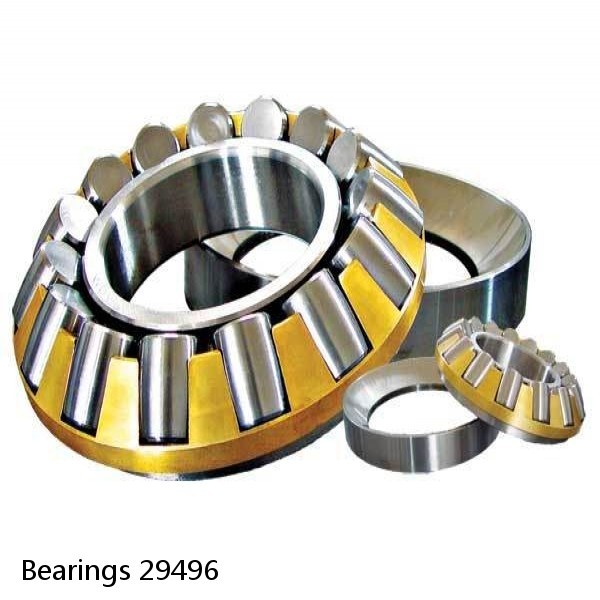 Bearings 29496
Bearings 29496 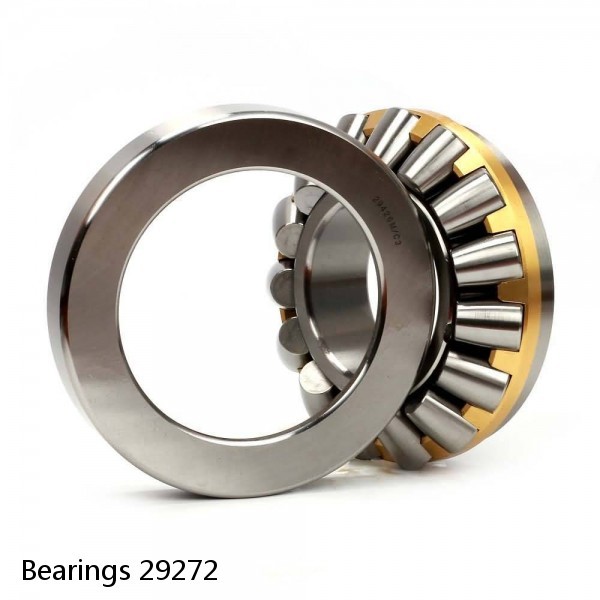 Bearings 29272
Bearings 29272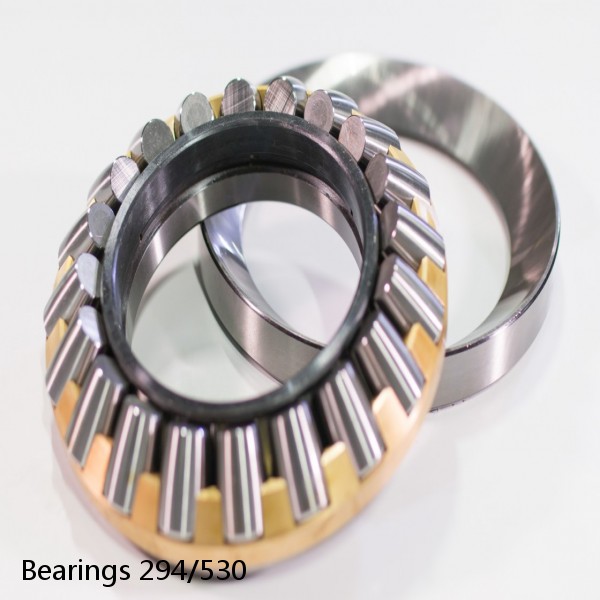 Bearings 294/530
Bearings 294/530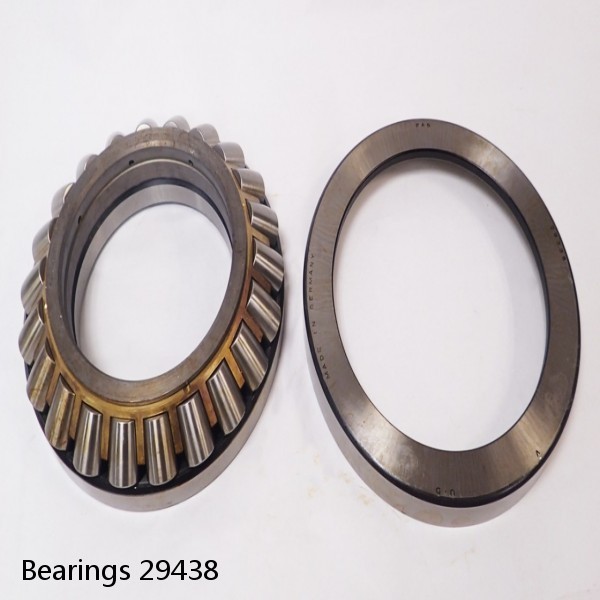 Bearings 29438
Bearings 29438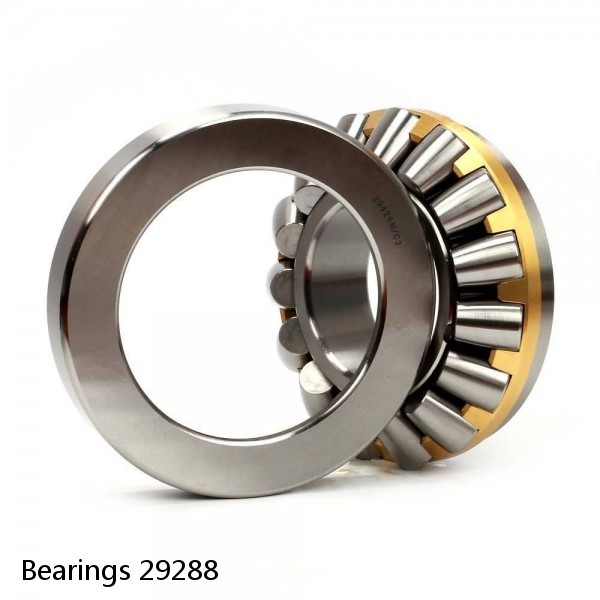 Bearings 29288
Bearings 29288